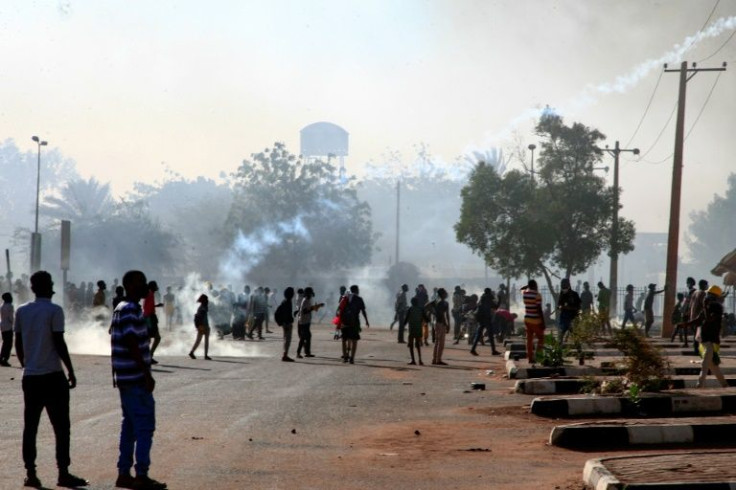End Of The Road For Sudan’s Democratic Transition?

In a nation rife with military coups, resignation is not a surprise but neither is the resistance.
The Jan. 2 resignation of caretaker Prime Minister Abdalla Hamdok and institutionalization of military takeovers in Sudan with most military coups and attempted coups, amounting to 18, six of them successful, have punctured the hopes for the northeast African nation's transition to civilian rule and the proposed polls in 2023.
With the 66-year-old Hamdok gone, people have taken to the street and the military has resorted to its well-trodden and brutal tactics to quell stirs, reversing the gains made as the country attempted to return to civilian rule in July 2023 after three decades of Omar al-Bashir's brutality regime, which ended in 2019.
On Jan. 2, thousands took to the street in capital Khartoum and other parts of the country and braved tear gas, heavy troop deployment, and a telecommunications blackout seeking a government by civilian representatives.
Pro-democracy protestors said security forces killed three protesters Jan. 2. At least 57 protesters have been killed since the latest military coup on Oct. 25, led by General Abdel Fattah al-Burhan, according to the Central Committee of Sudanese Doctors (CCSD).
Hamdok's task has been a turbulent one from the get-go. The transitional government, installed in November this year, had to put up with the bloody legacy of past repression by former president Omar al-Bashir, wanted by the International Criminal Court (ICC) on charges of genocide and crimes against humanity.
The military shot down the transitional government's Dismantling Committee, which tried to seize economic assets allegedly stolen by leading military officers. It is alleged that the Sudanese military is active in illegal gold mining operations, as well as in oil, aviation, whose profits often bypass the government exchequer.
The former UN staffer also failed to end atrocities by the army on the pro-democracy protestors, who did not want the army to have a say in the formation of the new government.
The resignation Hamdok is a big blow to the military, headed by General al-Burhan, who banked on him to appease protesters and legitimize its stay in power.
Addressing the nation on state television, Hamdok, the civilian face of the country's fragile transition, said Jan. 2 evening, "I have tried my best to stop the country from sliding towards disaster."
Sudan "is crossing a dangerous turning point that threatens its whole survival."
Sudan has seen mass protests against the Oct. 25 coup by al-Burhan as demonstrators distrust veteran general Burhan on democracy and accuse his regime of an extension of the establishment built by former dictator Bashir.
Burhan insists the latest military's move "was not a coup" but a push to "rectify the course of the transition."
The military regime has initiated a major crackdown on the pro-democracy protestors, who insist that power be handed over to a fully civilian government. In December, Sudan's authorities were condemned by the European Union and the US after sexual attacks on 13 women and girls after they fell victims of rape or gang rape.
In the joint statement, the EU and the US flayed the use of sexual violence "as a weapon to drive women away from demonstrations and silence their voices".
Hamdok's resignation took place as over 14 million people, one in three of 44.35 million Sudanese, will need humanitarian aid during the coming year, according to the UN Office.
It is feared that the exit of Hamdok, an economist by profession, will put curtains on the most heralded and closely watched democratic transitions in Africa.





